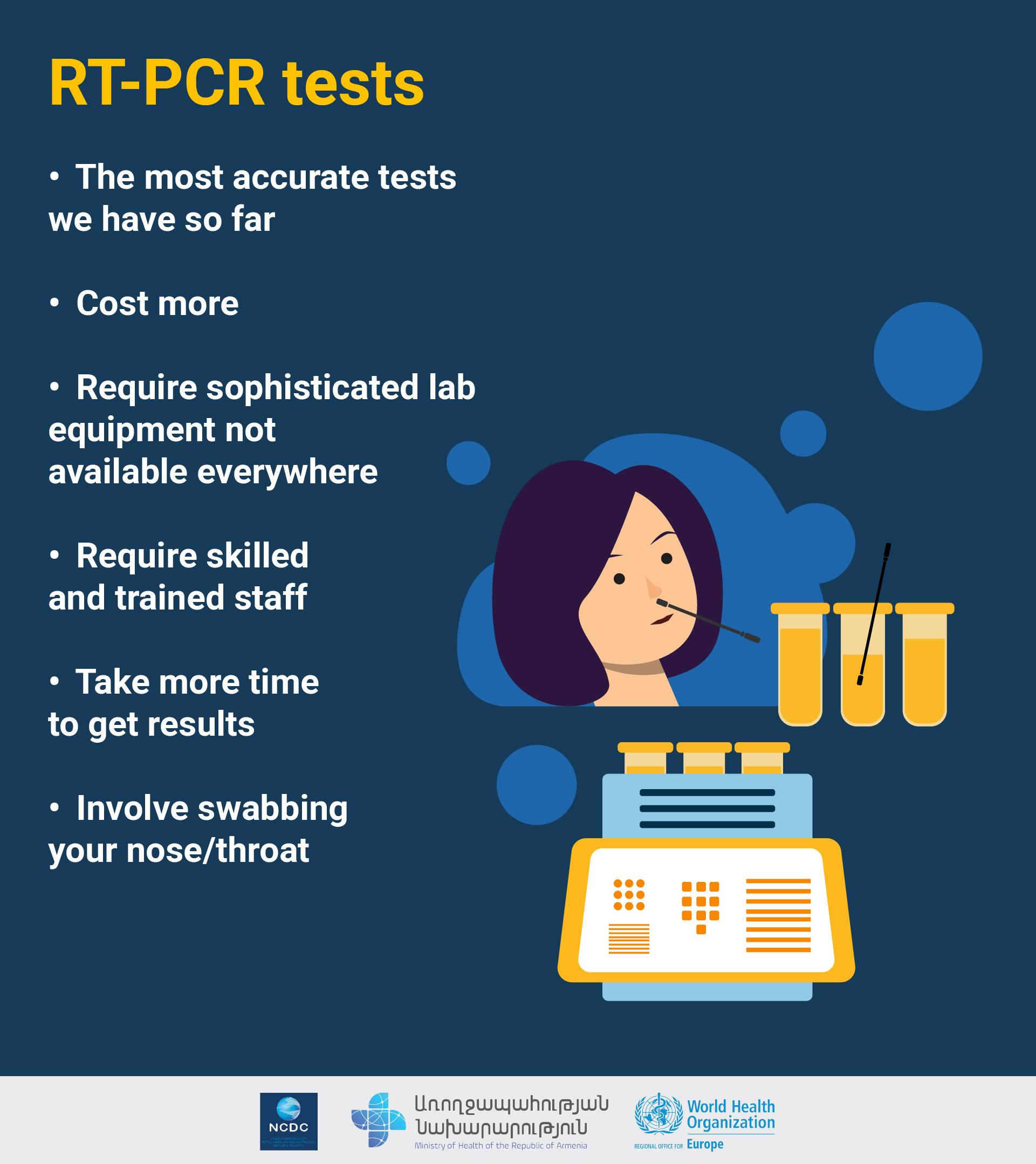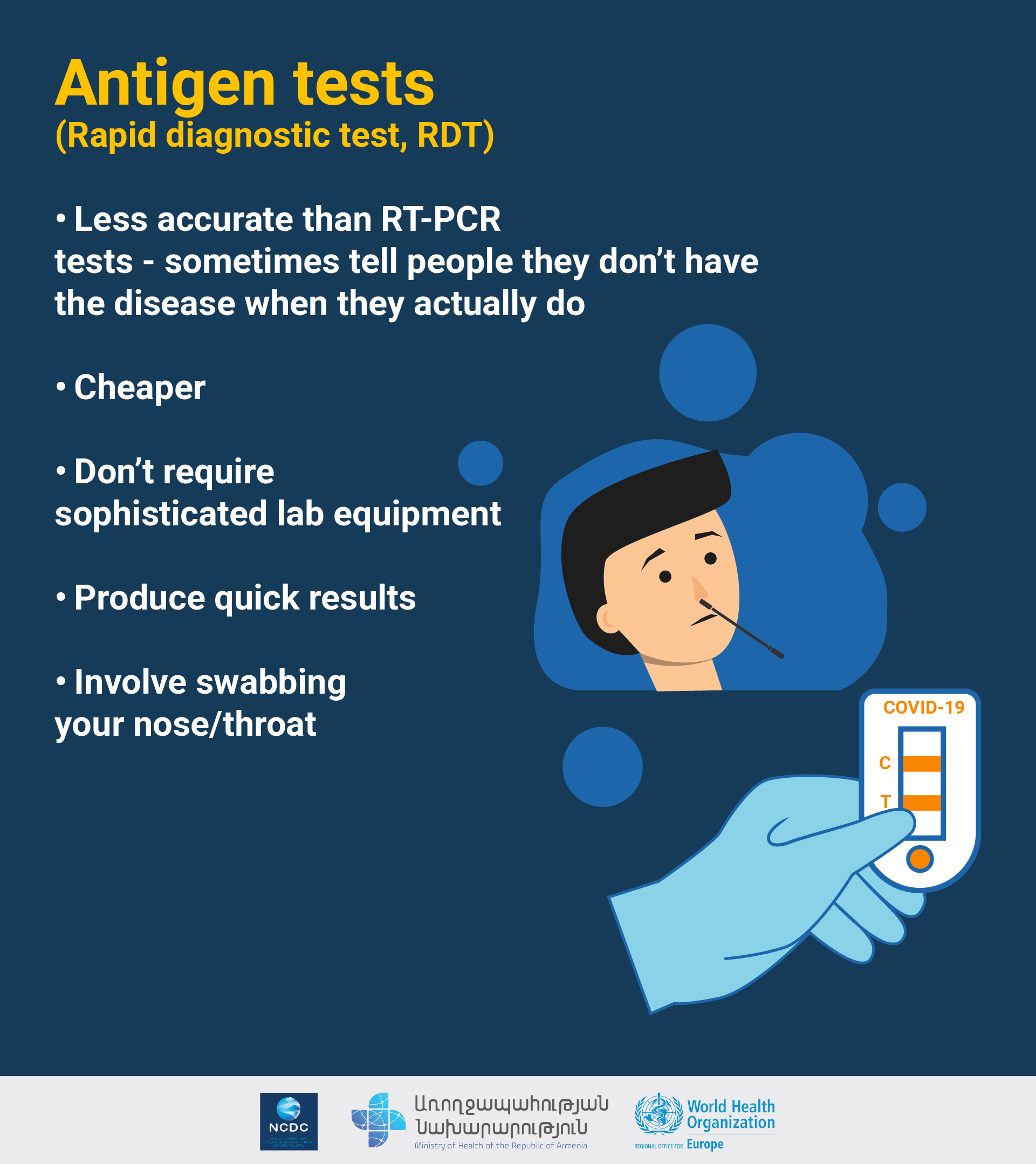PCR and Rapid tests
COVID-19 tests are available that can test for current infection or past infection.
A viral test tells you if you have a current infection. Two types of viral tests can be used: nucleic acid amplification tests (NAATs) also called PCR tests and antigen tests also called rapid tests³. A viral test checks specimens from your nose or your mouth to find out if you are currently infected with the virus that causes COVID-19. Viral tests can be performed in a laboratory, at a testing site, or at home or anywhere else1.
PCR tests
A PCR is a type of viral diagnostic test for SARS-CoV-2, the virus that causes COVID-19. The PCR procedure works by first amplifying – or making many copies of – the virus’s genetic material, if any is present in a person’s specimen. In other words, PCRs can reliably detect small amounts of SARS-CoV-2 and are unlikely to return a false-negative result of SARS-CoV-2².
Antigen Testing for SARS-CoV-2 or Rapid tests
 Antigen tests are immunoassays that detect the presence of a specific viral antigen, which implies current viral infection. Antigen tests are currently authorized to be performed on nasopharyngeal or nasal swab specimens placed directly into the assay’s extraction buffer or reagent. However, NAATs can remain positive for weeks to months after initial infection and can detect levels of viral nucleic acid even when virus cannot be cultured, suggesting that the presence of viral nucleic acid may not always indicate contagiousness4.
Antigen tests are immunoassays that detect the presence of a specific viral antigen, which implies current viral infection. Antigen tests are currently authorized to be performed on nasopharyngeal or nasal swab specimens placed directly into the assay’s extraction buffer or reagent. However, NAATs can remain positive for weeks to months after initial infection and can detect levels of viral nucleic acid even when virus cannot be cultured, suggesting that the presence of viral nucleic acid may not always indicate contagiousness4.Reference list:
¹ Testing for COVID-19 | CDC. (n.d.). Retrieved July 22, 2021
² Test for Current Infection | CDC. (n.d.). Retrieved July 22, 2021
³ Nucleic Acid Amplification Tests (NAATs) | CDC. (n.d.). Retrieved July 22, 2021
⁴ Interim Guidance for Antigen Testing for SARS-CoV-2 | CDC. (n.d.). Retrieved July 22, 2021

